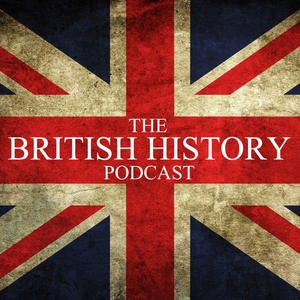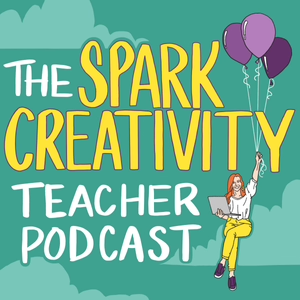
Reconstruction 101: Progress and Backlash – w/ Kate Masur
10/13/21 • 111 min
Just months after the Civil War ended, former Confederates had regained political footholds in Washington, D.C. In her overview of Reconstruction, Kate Masur notes how—in the face of evolving, post-slavery white supremacy—Black people claimed their citizenship and began building institutions of their own. Ahmad Ward then takes us to 1860s Mitchelville, South Carolina, where Black policing power, land ownership and more self-governance were the norm.
Visit the enhanced episode transcript for even more resources for teaching about Reconstruction and the Jim Crow era.
And Educators! Get a professional development certificate for listening to this episode—issued by Learning for Justice. Listen for the special code word, then visit learningforjustice.org/podcastpd.
Just months after the Civil War ended, former Confederates had regained political footholds in Washington, D.C. In her overview of Reconstruction, Kate Masur notes how—in the face of evolving, post-slavery white supremacy—Black people claimed their citizenship and began building institutions of their own. Ahmad Ward then takes us to 1860s Mitchelville, South Carolina, where Black policing power, land ownership and more self-governance were the norm.
Visit the enhanced episode transcript for even more resources for teaching about Reconstruction and the Jim Crow era.
And Educators! Get a professional development certificate for listening to this episode—issued by Learning for Justice. Listen for the special code word, then visit learningforjustice.org/podcastpd.
Previous Episode

The History of Whiteness and How We Teach About Race – w/ Edward E. Baptist and Aisha White
Historian Ed Baptist provides context on the creation and enforcement of a U.S. racial binary that endures today, as well as Black resistance as a force for political change. And Aisha White urges educators to ask themselves, “What did you learn about race when you were younger?” before they engage with children. She argues that self-reflection and ongoing education are vital tools to combat the fallacy of ignoring students’ racialized experiences.
Educators! Get a professional development certificate for listening to this episode—issued by Learning for Justice. Listen for the code word, then visit learningforjustice.org/podcastpd.
To start the conversation in your classroom, this overview of the “Historical Foundations of Race” by David Roediger is a comprehensive and perfect for educators—from the National Museum of African American History & Culture.
For younger learners, P.R.I.D.E.’s Research Findings offer valuable insights into child development and race. And elementary teachers may want to use this lesson—“Looking at Race and Racial Identity in Children’s Books”—from Learning for Justice.
If you’re interested in bringing archival sources into your lessons, Freedom on the Move provides some wonderful, detailed K-12 lessons utilizing fugitive slave ads. And here’s the 1910 essay “The Souls of White Folk” by W.E.B. Du Bois that was quoted in the introduction.
And be sure to visit the enhanced episode transcript for even more classroom resources about teaching the construction of race and the history of whiteness.
Next Episode

Correcting History: Confederate Monuments, Rituals and the Lost Cause – w/ Karen Cox
The Lost Cause narrative would have us believe that Confederate monuments have always been celebrated, but people have protested them since they started going up. Historian Karen Cox unpacks how the United Daughters of the Confederacy used propaganda to dominate generations of teachings about the Civil War through textbooks, legislation, and popular culture—and how, after the war, the South and the North prized white reconciliation over justice for all.
Educators, you can get a professional development certificate for listening to this episode—issued by Learning for Justice. Listen for the special code word, then visit learningforjustice.org/podcastpd.
And be sure to visit the enhanced episode transcript for even more resources for teaching about the role of the Lost Cause narrative in the Jim Crow era.
If you like this episode you’ll love
Episode Comments
Generate a badge
Get a badge for your website that links back to this episode
<a href="https://goodpods.com/podcasts/teaching-hard-history-1203/reconstruction-101-progress-and-backlash-w-kate-masur-17102866"> <img src="https://storage.googleapis.com/goodpods-images-bucket/badges/generic-badge-1.svg" alt="listen to reconstruction 101: progress and backlash – w/ kate masur on goodpods" style="width: 225px" /> </a>
Copy




